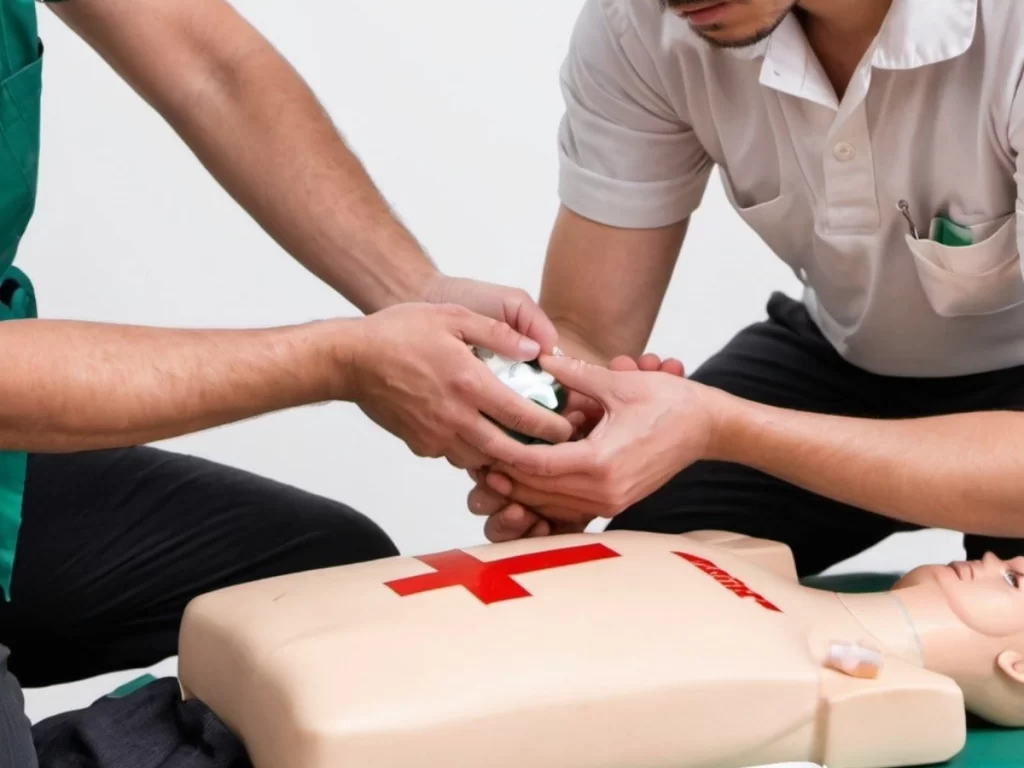
Adventure awaits! But before you embark on your next globetrotting expedition or relaxing beach vacation, consider equipping yourself with a lifesaving skill: CPR certification for travelers.
CPR is a set of techniques performed on a person who has suffered cardiac arrest. It involves chest compressions and rescue breaths to maintain circulation and oxygen flow until medical help arrives. Earning your CPR certification for travelers empowers you to act decisively in an emergency situation, potentially saving a life while you’re far from home.
In this comprehensive guide, we’ll delve into the importance of CPR certification for travelers, explore the different types of certifications available, and guide you through the process of obtaining your credentials. We’ll also address frequently asked questions and provide valuable tips for using your CPR skills during your travels.
Travel broadens our horizons and exposes us to new cultures and experiences. However, unforeseen circumstances can arise, and medical emergencies can occur anywhere in the world. Here’s why CPR certification for travelers is a valuable asset:
While some destinations might have readily available medical assistance, CPR certification empowers you to take charge and potentially save a life, irrespective of location.
There are various CPR certifications available, each catering to different needs and skill levels. Here’s a breakdown of the most common types for travelers:
When choosing a CPR certification for travelers, consider your travel style and comfort level. BLS offers the most comprehensive skillset for various scenarios, making it a versatile choice.
The process of obtaining your CPR certification for travelers is straightforward and accessible. Here’s a step-by-step guide:
Receive Your Certification: Upon successful completion of the course and skills test, you’ll receive your CPR certification card, typically valid for two years.
Yes, most CPR certifications expire after two years. Renewal courses are readily available to refresh your skills and maintain your certification.
In most cases, yes. CPR certifications issued by recognized organizations like AHA or the Red Cross are widely accepted internationally. However, it’s always advisable to check with the specific destination you’re traveling to for any local requirements or recommendations regarding CPR certification.
If you witness someone experiencing cardiac arrest, here’s what to do:
Here are some important points to remember:
Personal safety: Always prioritize your safety. If the situation feels unsafe, don’t hesitate to seek help from others or wait for medical professionals to arrive.
Earning your CPR certification for travelers is just the first step. To ensure your skills remain sharp, consider these tips:
CPR certification for travelers is an empowering skill that transcends geographical boundaries. It equips you with the knowledge and confidence to respond effectively in a medical emergency, potentially saving a life while you explore the world. With a little preparation and ongoing practice, you can become a valuable asset to fellow travelers and contribute to a safer travel experience for everyone.
So, the next time you pack your bags for an adventure, consider adding CPR certification to your travel essentials. It’s a small investment that can make a world of difference. Find the best CPR training center near you and get certified today!